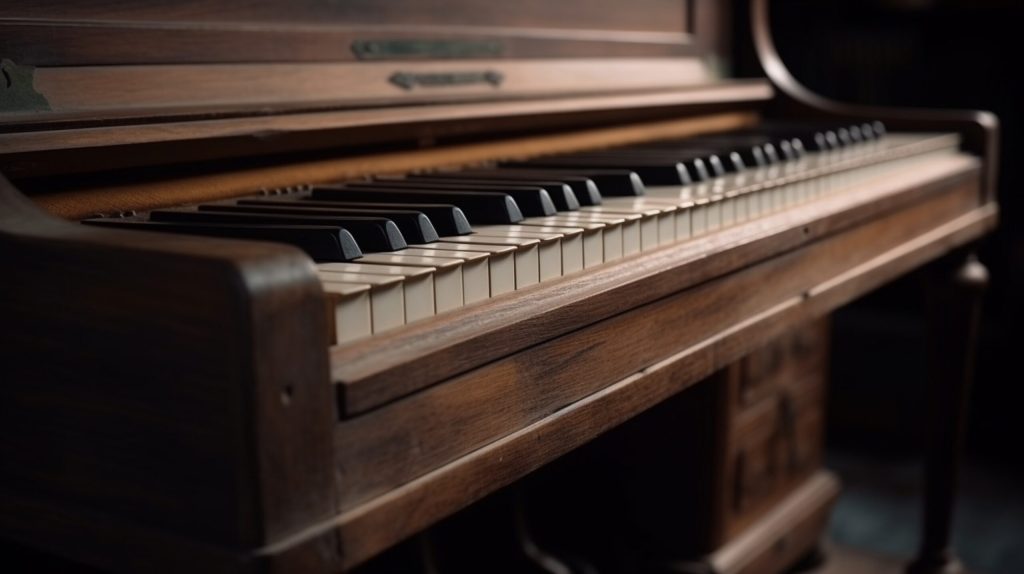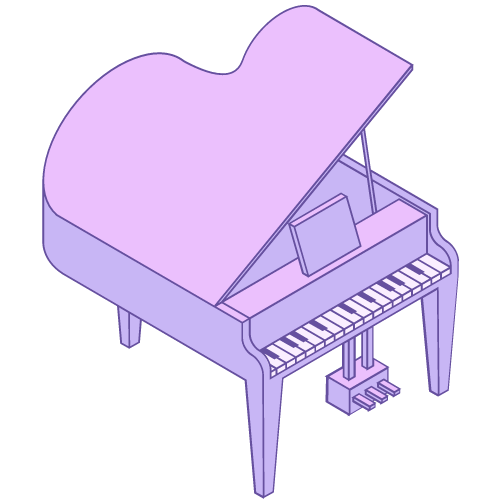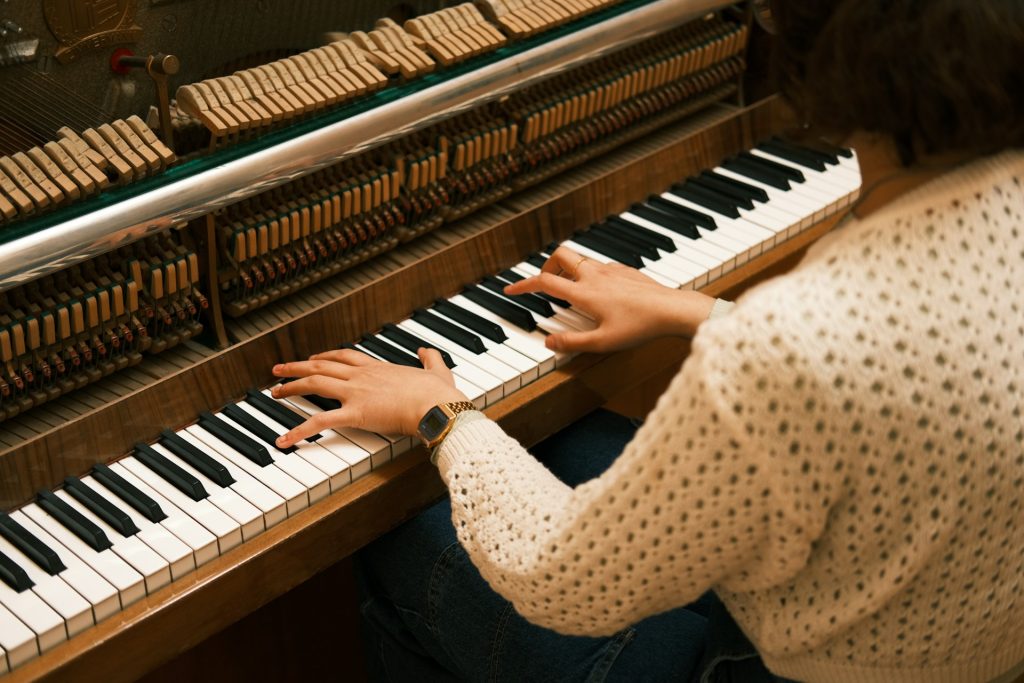Blog
How to Properly Maintain Your Piano for Longevity
Pianos are significant investments, both financially and emotionally. Whether you have a digital piano or an acoustic one, proper maintenance is essential to ensure the longevity of your instrument and preserve its sound quality. Regular care will also help you avoid costly repairs and keep your piano in top condition for years to come.
In this guide, we’ll walk you through the key steps to properly maintain your piano, whether it’s a grand piano, upright piano, or digital piano. By following these maintenance practices, you can ensure that your instrument remains in excellent working condition, enhancing your playing experience and safeguarding your investment.
1. Keep Your Piano Clean
A clean piano not only looks better but also contributes to its longevity. Dust and grime can accumulate on your instrument, affecting both its appearance and functionality. Here’s how to clean different parts of your piano:

For Acoustic Pianos:
- Keys: Gently wipe down the keys with a soft, dry cloth. Avoid using harsh chemicals, as they can damage the key finish. For stubborn dirt, slightly dampen the cloth with water, but never let water seep into the cracks between the keys.
- Exterior: Clean the piano’s exterior using a microfiber cloth to remove dust. If the surface is wood, use a wood-specific cleaner or polish. Make sure to read the manufacturer’s recommendations for cleaning products, as some finishes may require special care.
- Pedals: Clean the pedals with a damp cloth, but dry them immediately to prevent rust or corrosion. A small amount of metal polish can be applied to the pedals to keep them shining.
For Digital Pianos:
- Keys: Dust the keys regularly using a microfiber cloth. Avoid using any cleaning solutions on the keys as it could damage the finish. For deeper cleaning, use a slightly damp cloth.
- Exterior: Wipe down the exterior with a dry cloth. Be careful not to allow moisture to seep into any crevices, especially around the connections and ports.
- Display Screen and Buttons: Use a soft cloth or screen wipe to clean the digital display and control buttons. Avoid harsh chemicals that may cause damage.
2. Tune Your Piano Regularly
One of the most important aspects of maintaining an acoustic piano is regular tuning. When the strings of your piano are tuned properly, it ensures that the piano stays in tune over time. For an upright or grand piano, tuning is essential to maintain its sound quality.
How Often Should You Tune Your Piano?
- New Pianos: It is recommended that you tune your new acoustic piano 3-4 times in the first year to allow the strings to settle.
- Regular Pianos: For regular usage, a piano should be tuned at least once or twice a year. However, if the piano is played frequently, more regular tunings (every 6 months) may be necessary.
- Humidity and Temperature: Pianos are sensitive to changes in humidity and temperature, which can cause the strings to stretch and affect the tuning. If you live in an area with extreme weather fluctuations, you may need to tune the piano more often.
If you’re not comfortable tuning the piano yourself, always hire a professional piano tuner who has the right tools and expertise to ensure proper tuning.
3. Keep Your Piano in a Stable Environment
Pianos are sensitive to environmental conditions. Humidity, temperature, and even sunlight can affect the piano’s performance and longevity. To maintain your piano’s condition, it’s crucial to place it in an environment with stable temperature and humidity levels.
Humidity Control:
- Ideal Humidity Levels: The ideal relative humidity for pianos is between 40% and 60%. Too much humidity can cause the wood to warp, while too little can cause the wood to crack or shrink.
- Use a Humidifier: In dry climates or during winter months, consider using a humidifier in the room where your piano is kept. This will help maintain the ideal moisture levels and prevent damage to the instrument.
- Avoid Direct Sunlight: Direct sunlight can cause the finish of your piano to fade and affect the wood. Keep your piano away from windows or use curtains or blinds to limit sun exposure.
Temperature Control:
- Ideal Temperature: The ideal temperature for a piano is between 68°F and 72°F (20°C – 22°C). Extreme heat or cold can cause the piano’s parts to expand and contract, leading to damage over time.
- Avoid Air Conditioning and Heaters: Keep the piano away from air conditioners, radiators, and heating vents, as these can dry out or warp the wood.
4. Have Regular Professional Inspections
While you can do regular maintenance at home, it’s important to have your piano inspected by a professional technician on a regular basis. A piano technician can spot issues that may not be immediately noticeable, such as:
- Worn-out action parts (the moving parts inside the piano that strike the strings)
- Uneven or sticky keys that may need adjustment
- Broken strings or other components that need replacement
- Voicing (adjusting the tone of the piano for a more consistent sound)
A professional technician can also regulate the piano’s action, ensuring that all parts are working properly and that the touch is even across the keyboard.
5. Protect Your Piano from Damage
Accidents can happen, but taking some preventative measures can help protect your piano from damage.

For Acoustic Pianos:
- Piano Cover: Use a piano cover to protect the surface from dust, dirt, and accidental spills. A cover will also protect the piano from pet hair or other potential damage when not in use.
- Avoid Heavy Objects on the Piano: Don’t place heavy items, such as books or decorations, on top of the piano. These can damage the finish or, in extreme cases, cause structural damage to the piano.
For Digital Pianos:
- Keyboard Cover: Invest in a keyboard cover to keep dust and debris off the keys.
- Proper Storage: If you need to store your digital piano, ensure it is in a safe, dry environment. When transporting it, use a padded case or protective cover to prevent scratches or other damage.
6. Regularly Check and Care for the Pedals
The pedals on both acoustic and digital pianos are essential for creating dynamic effects and enhancing the sound of the instrument. Maintaining your pedals ensures that your piano responds properly during play.
- For Acoustic Pianos: Check the pedals regularly for any signs of wear or stiffness. A professional technician can adjust the pedals to ensure they function correctly.
- For Digital Pianos: Inspect the pedals for wear, especially if the piano is frequently moved. Some digital pianos allow for the addition of external pedal systems, so ensure they are securely attached and functioning correctly.
7. Maintenance for Specific Piano Types
Grand Pianos:
- Humidity Control: Grand pianos are particularly sensitive to humidity and temperature fluctuations. Consider using a humidity control system designed for pianos (like a Dampp-Chaser) to maintain the ideal conditions inside the piano.
- Moving: If you need to move your grand piano, always hire professional piano movers. Moving a grand piano improperly can cause irreparable damage to its parts and frame.
Upright Pianos:
- Check the Pedals and Action: Upright pianos tend to collect dust in their action and pedal mechanisms. Clean the action periodically to keep everything working smoothly.
- Regular Tuning: Like grand pianos, upright pianos also require regular tuning, especially if they are exposed to fluctuating humidity levels.
Digital Pianos:
- Regular Software Updates: Some digital pianos require periodic software updates to ensure the best performance. Check for updates on the manufacturer’s website or through the piano’s interface.
- Battery Maintenance: If your digital piano is battery-operated, make sure to check and replace the batteries regularly to avoid power issues.
Conclusion: Caring for Your Piano
Proper maintenance is key to ensuring that your piano remains in excellent condition for years to come. Whether you own a digital piano, an upright piano, or a grand piano, regular cleaning, tuning, environmental control, and professional inspections are crucial to maintaining its longevity. By following these maintenance steps, you can protect your investment, preserve your piano’s sound, and ensure that your child or yourself can enjoy playing for many years.
Remember, a well-maintained piano not only sounds better but also encourages better playing habits, helping to improve your skills as a musician. So, take the time to care for your instrument—it will reward you with beautiful music for decades.


